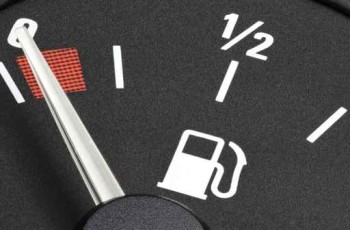Total Carbon Footprint Reduced by 26,260 lbs

Dr. Gilbert Miller, a horticulturist and researcher at Clemson University’s Edisto Agricultural Research and Extension Center in Blackville, S.C., partnered with the research team from Lee Rain to help solve one of the fundamental challenges facing growers: discovering when to water and how much water should be applied to achieve optimal watermelon yields.
Their research focused on determining the appropriate soil moisture set points for the automation of drip irrigation scheduling in South Carolina’s sandy costal soils. The team installed soil moisture sensors to monitor the water profile of the watermelon crops. More importantly the data gathered from the field would be analyzed utilizing Lee Rain’s own patented Adviroguard™ software with the objective of identifying optimal operational efficiencies for watermelon production.
DISCOVERIES
By monitoring and analyzing the plants’ responses to irrigation with the aid of Adviroguard™, the team was able to obtain a detailed picture of how and when the plants were utilizing water and to precisely adjust water application accordingly. In contrast to two other plots in the trial, the field using this approach consumed 6″ less water (approximately 146,631 gallons/acre). Using the analysis to reduce the number of stress days where the soil was too wet or too dry resulted in a dramatic increase in watermelon yields in successive growing seasons, ranging from 20,000 to 40,000 lbs. more per acre than in plots where standard irrigation practices were applied.
In the 2011 growing season, the difference between standard practice plots and the one using the Adviroguard™ process painted a vivid picture.
Plot 1 Irrigated: 1 time per day
Total Water for Season: 11.5″
Yield: 69,547 lbs. per acre
Plot 2 Irrigated: 3 times per day
Total Water for Season: 11.5″
Yield: 86,593 lbs. per acre
Plot 3 Irrigated:
Only when Adviroguard™ indicated plants required it
Total Water for Season: 6.1″
Yield: 109,884 lbs. per acre
OUTCOMES WITH IMPACT
Findings from studies, like the one at Clemson University, form the foundation of Lee Rain’s Ag Management Strategies—action plans designed to empower growers to realize the full potential of their abilities: manageability, profitability, accountability and sustainability. By using interpreted data gathered directly from above and below the soil surface, Dr. Miller and the Lee Rain team were able to reach some important conclusions regarding how to best deal with the unique challenges of growing watermelons in South Carolina’s sandy soils. When irrigation was in sync with the needs of the plants, there was a profound impact on both water savings and crop yield, a conclusion borne out again and again over five years of study.
Today Lee Rain is partnering with commercial growers across the country to take plant-triggered irrigation beyond the realm of research and put it to work changing the way we grow.
- MANAGEABILITY. 66% improvement in water use efficiency per pound of production (Conventional irrigation = 4.5 gallons of water consumed/lb vs. plant triggered irrigation = 1.5 gallons of water consumed/lb)
- PROFITABILITY. $484,000/100 acres (Increased yield of 40,337 lbs at
$.12/lb = $4,840/acre for each acre of production)
- ACCOUNTABILITY. 14,663,100 gallons of water saved (Using Ag Management
Strategies, 146,631 gallons of water were given back to the community when compared to traditional irrigation for 100 acres of production)
- SUSTAINABILITY. Total carbon footprint reduced by 26,260 lbs of CO2 (Reducing
fuel consumption by 11.83 gallons of diesel fuel per acre reduces the carbon footprint by 26,260 lbs for 100 acres of production)
